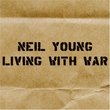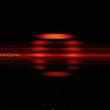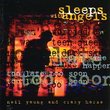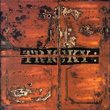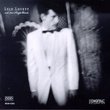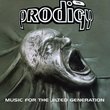| All Artists: Tangerine Dream Title: Exit Members Wishing: 2 Total Copies: 0 Label: Elektra / Wea Release Date: 10/25/1990 Genres: Dance & Electronic, New Age, Pop, Rock Styles: Electronica, Meditation, Progressive, Progressive Rock Number of Discs: 1 SwapaCD Credits: 1 UPCs: 075596057929, 0724384051952, 075590055747, 075596057943, 724384051921 |
Search - Tangerine Dream :: Exit
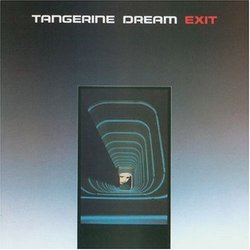 | Tangerine Dream Exit Genres: Dance & Electronic, New Age, Pop, Rock
Released during a period of tense Cold War saber rattling, Tangerine Dream's Exit (1981) shows that even a machine-driven electronic band can claim a social conscience. Its first track, "Kiev Mission" (which the label miss... more » |
Larger Image |
CD DetailsSynopsis
Amazon.com Released during a period of tense Cold War saber rattling, Tangerine Dream's Exit (1981) shows that even a machine-driven electronic band can claim a social conscience. Its first track, "Kiev Mission" (which the label misspelled on the album), opens with explosions, sirenlike wails, and then, against a stark sonic backdrop, a whispered plea (a female voice speaking Russian) to end the threat of a "limited" nuclear war, a genuine and much-discussed danger at the time. Some of the album's atmospheric pieces are a touch dated and static (though the X-Files-like "Remote Viewing" merits a thumbs-up). Still, Exit contains two of the most intriguing short-form compositions the group ever released: the driving "Choronzon" and the pulsing, ever-evolving "Network 23," a truly arresting piece in its day, and one that still sounds good a few decades later. --Terry Wood Similarly Requested CDs
|
CD ReviewsTo Associate With the Friends... Sergey Lenkov | Mother Russia | 03/01/2006 (5 out of 5 stars) "Hello, fans of Tangerine Dream! I will reveal the mystery of Russian words in "Kiev Mission"! Of course, I like the album because of this track. The humour of TD is the following: for English or German speaking listener these words sounds as spoken by Russian girl, while for Russian listeners (girl speaks-whispers-sings with the strong foriegn acsent) it sounds as Russian words spoken by friendly foreigner. The words are the following: Continents Asia, Africa, Europe, Australia, America It`s - the Earth Past tense Present tense Future tense World is we are To understand To ask To answer To talk To start thinking Transmission... To associate (to communicate) with the friends... To exchange opinions... Infinity An intelligent being Talking, dialog Continents: Asia, Africa, Europe, Australia, America It`s all - the Earth. As you see there were nothing poltical in these words. Only idea of global unity which is close to people of different countries. I think that Russian words were choosen because they sounded exotic for the Western ear and beacuase of their rhythm. By the way, electronic music by TD and Jarre was popular in the USSR in time of cold war... And still is popular in Russia. As to cold war itself - We lived the same normal usual every-day life as you but with our own problems. For the people in the state which lost more than 20 million lives in the 2WW - nearly every family lost its relatives - every talk and wish of possibility of new world war was a kind of sacrilege. And Chrustchev didn`t told: "We will bury you". He spoke vulgar Russian-Ukrainian slang, so English translation was complete fake (the meaning was lost in translation). He meant that (in his humble opinion:) USSR will win competition with America and would show much better results of development. So don`t think of political stupidity of the cold war - simply enjoy the music! Also I recommend you best albums by TD: Le Parc (1985) Underwater Sunlight (1986) Goblin`s Club (1996) Try also "Jeanne D`Arc" (2005) and interesting solo albums by former TD members (though music differs from TD sound still it`s dynamic and interesting): Christopher Franke "The London Consert" (1992) and "Celestine Prophesy" (1996), Paul Haslinger "World Without Rules" (1996). " TD enters the 80s with a pulsating BANG M. B. Link | USA | 07/08/2005 (5 out of 5 stars) "Exit(1981). Tangerine Dream's 14th(?) studio album. All throughout the 70s, Tangerine Dream had been experimenting the limits of various keyboard, pedal synthesizer, and sequence effects in order to create very atmospheric musical soundscapes. They weren't meant for everyone, but each album proved to be an interesting listen for those who could get into them. Every release would have very few, yet lengthy tracks, and that aspect didn't really change much over the years. Phaedra(1974) and Rubycon(1975) were the peak output of those type of TD albums, and served as the first real means of gaining a cult fanbase. Then Force Majeure(1979) saw the group beginning to incorporate rhythms into the music, making it more accessible to new listeners. This culminated in 1980's Tangram, which was the last album to feature one giant album-length song. Shortly thereafter, the band created the soundtrack to the movie Thief(1981), shortening the lengths of each instrumental and making them more numerous, and this would carry over onto Exit. This album is the first one of theirs to have more than four tracks, and most of them rarely go beyond 5-6 minutes. Unlike most of the TD output to be released throughout the 80s, Exit carries a dark, futuristic feel to it, and it can be felt all over the album. White Eagle(1982) continued to explore in the same vein, and Hyperborea(1983) went for a dark ambient sound with cultural references, but Exit probably pulled the theme off the best during this period. Much of the style is brought over from their Thief soundtrack score and given its own breathing space on Exit. High-reverb keyboards had begun to be incorporated heavily into the melodies, and although sounding VERY 80s and maybe coming off as cold to some people, it works for its warish 1984-type atmosphere. And speaking of future wars, the first track 'Kiev Mission' delivers 10 minutes of melodic rhythm mayhem. The story here is that this track was written as a protest statement against the Cold War in Russia, and many copies of this album were sold throughout the country to get the message across. It starts out with a few bangs, then slowly the synthetic drum beat pulses in and carries a powerful theme around, shortly before an unnamed Russian girl vocalist whispers her plea against a world war. This is where the whole "protest" theme came from. It doesn't end as strong as it starts, but the final part of Kiev Mission shouldn't be skipped. 'Pilots Of The Purple Twighlight' is run without any drumming, but carries an awesome melody that repeats for several minutes. 'Chorozon' is a bit more upbeat and positive sounding, and could easily fit on White Eagle. I love the title track's slow, dark, and powerful bass synth that plods along, complete with a memorable keyboard line and rain sound effects. Then 'Network 23' has a surprisingly non-dated techno drum sequence which sort of serves as a prototype for some 80s and 90s techno. Finishing off Exit is the outstanding 'Remote Viewing' which goes through a few different transitions in its 8-minute span. The first 3 minutes or so has sort of a dark soundscape reminding the fans that TD still held onto their 70s era to an extent, and wouldn't abandon it completely over the next couple of albums. 80s TD may be somewhat less complex than TD's earlier material, but it still was very well produced. Then the song ends with a lighter section that repeats a number of times. Replayability: medium. Enter the Exit often (pun intended). Although the album's length is slightly less than 40 minutes, each of Exit's tracks is of high quality, and so I'll give it 5 stars. It ended up being my fifth purchase (of many!) for TD, but I would say that it makes a good starting point if you're first getting into 80s TD. HIGHLY RECOMMENDED. The sad thing is that EVERY ALBUM IS OUT OF PRINT! Even the remasters! So don't expect to find these in the stores. Unless you know of a used cd shop that happens to get TD albums from time to time, you're best off ordering them online. There are many, many albums, but thankfully most all of them can be found for very cheap. Either version of the album works. There are no bonus tracks, and the volume difference is only minimal, so buying any of them is ok. See also: -Tangram(1980) -Force Majeure(1979) -White Eagle(1982) -Thief(1981) -Hyperborea(1983)" One of the top five Tangerine Dream albums M. B. Link | 08/18/1999 (5 out of 5 stars) "I first heard this album on the radio late at night back in 1981 and was immediately hooked. IMHO, this album contains the 2nd best TD track - Remote Viewing. The second half of this track is eclipsed only by "Love on a Real Train" from the Risky Business Soundtrack. I'll never forget driving alone (and far from home) through the snow covered mountains in New Mexico at dusk as this song started playing on the car stereo. The solitude and eeriness on that two-lane road fell in on me in a way that I've never felt since. Although I'm not a musician, I think this album showcases the beginning of TD's most creative techniques of "layering" the simplest of tones and rhythms on top of each other to form a "song" that is different at each listening. Sounds fade in and out only to reappear later in the track in a different form. This effect is even more pronounced on the Soundtrack to the film Miracle Mile released in 1989. Sadly, that same effect is almost completely gone on newer albums (e.g., 220 Volt, Tyranny of Beauty) where, apparently without Schmoelling and Franke to restrain him, Froese has resorted to whining guitars to fill in time in otherwise decent compositions. The 1980's however, contain TD's most original material, of which Exit is surely among the best."
|

 Track Listings (6) - Disc #1
Track Listings (6) - Disc #1